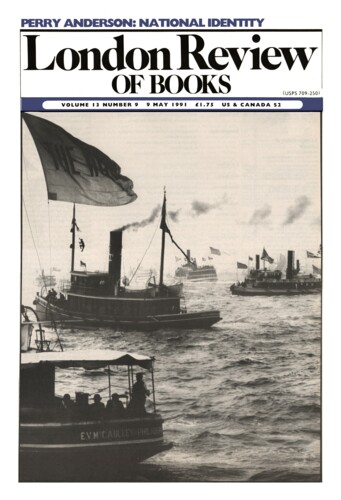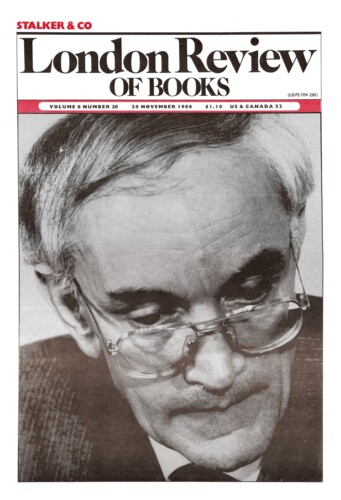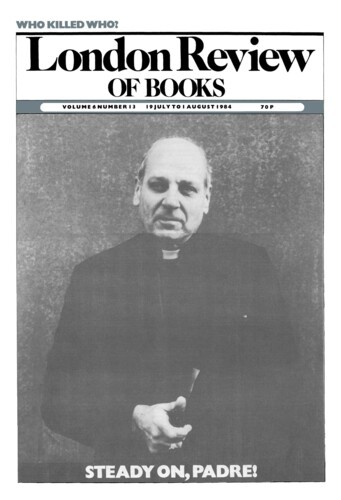Rupert Wilkinson
Rupert Wilkinson teaches British and American history at the University of Sussex. His most recent book, American Tough: The Tough Guy Tradition and American Character, will be reviewed here soon.
Diary: Harvard '61
Rupert Wilkinson, 20 November 1986
The class reunion – the gathering of a given year of graduates at their high school or college – is a Big American Event, and the biggest, most elaborate class reunion is the ‘Harvard 25th’, celebrating the quarter-century from each Harvard class’s year of graduation. When the first of a light snow of Harvard missives arrived a year ago in October, reminding me that the 25th-year reunion of my Harvard Class of 1961 would be the following June, my reactions were mixed. My four years in Cambridge, Mass. had been among my best, but somehow I had grown away from the place, transferring my affections to the smaller, cosier American colleges where I had taught. To keep up with the friends I treasured from my undergraduate years did not require a five-day jamboree. And yet I believed that I ought to go, that I would be missing and evading something if I did not.’
Saying yes
Rupert Wilkinson, 19 July 1984
The Democratic and Republican National Party Conventions (opening on 16 July and 20 August) will culminate in the acceptance speeches of the two nominees for President. When the nominees step up to the microphones to address the cheering party faithful in the convention hall, and the nation on television and radio, they will leave behind them the committee wranglings over party platforms and the balloting of the state party delegates which brought them their nominations. Although one nominee will be the incumbent President, re-selected without serious contest, whereas the other will have racked up his votes through the Democratic Party primary elections, the task of each speech will be much the same: to sound a chord for the campaign battle ahead while reaching for ideas and images that project national unity and personal statesmanship. The speeches will contain policy statements that reveal some choices and priorities, but they will be high-toned rather than specific. The acceptance speech is an affirmation, not a programme.
Pieces about Rupert Wilkinson in the LRB
Black, White and Female
Betty Wood, 2 May 1985
Given the enormous value which the historical profession currently attaches to the highly specialised monograph, it becomes all too easy to devalue, if not to denigrate, more general surveys of...
Read anywhere with the London Review of Books app, available now from the App Store for Apple devices, Google Play for Android devices and Amazon for your Kindle Fire.
Sign up to our newsletter
For highlights from the latest issue, our archive and the blog, as well as news, events and exclusive promotions.



